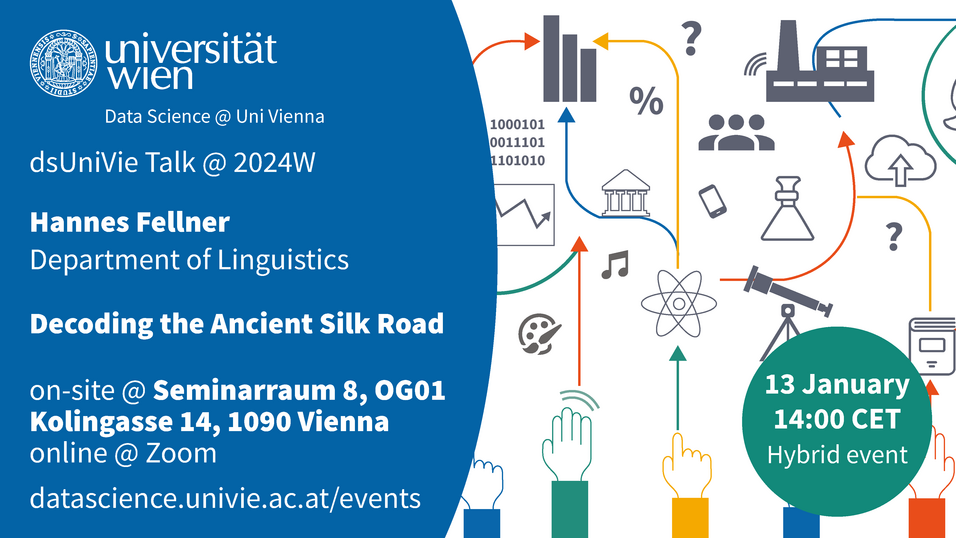Monday, 13 January 2025 @ 14:00–15:00 CET
On-site:
University of Vienna
Seminarraum 8 (OG01)
Kolingasse 14–16
1090 Vienna
Online:
https://univienna.zoom.us/j/67032386717?pwd=g8HOG2oRrWK6T5cvmRA7bv17QRzq72.1
Meeting ID: 670 3238 6717
Passcode: 440328
Decoding the Ancient Silk Road
Abstract :
From the 2nd century CE, dynamic communities flourished along the ancient Silk Road's trade routes around the Tarim Basin in present-day Xinjiang Uyghur Autonomous Region of the People's Republic of China. These were vibrant centers of writing, copying, translating, and transmitting texts. The predominant languages of this area—the Indo-European languages Sanskrit, Tocharian, and Saka—were written using a Central Asian variant of the Indian Brahmi script, known as Tarim Brahmi. Despite their historical and linguistic significance, these traditions are little understood due to the fragmentary nature of the surviving texts and contexts.
In this talk, I will explore the efforts to digitize and make these ancient languages and the Tarim Brahmi script accessible for research in linguistics, philology and beyond. This endeavor promises to unlock new insights into the cultural and intellectual exchanges that once thrived along the Silk Road.
Bio :
Hannes A. Fellner (PhD, Harvard University) is associate professor in the Department of Linguistics and the Department of European and Comparative Literature and Language Studies at the University of Vienna. From 2018-2024 he was the PI of the FWF START-project "The characters that shaped the Silk Road - A digital paleography of Tarim Brahmi". He currently is Co-PI of the WWTF project "Disentangling Effects of Digitization on Linguistic Diversity". He is a member of the Young Academy of the Austrian Academy of Sciences and the director of the Austrian Institute for Research on China and Southeast Asia. Fellner's research interests include historical and comparative linguistics and philology of the Indo-European languages of the ancient Silk Road, digital and theoretical approaches to language change and diversity, and Indo-European nominal morphology.

